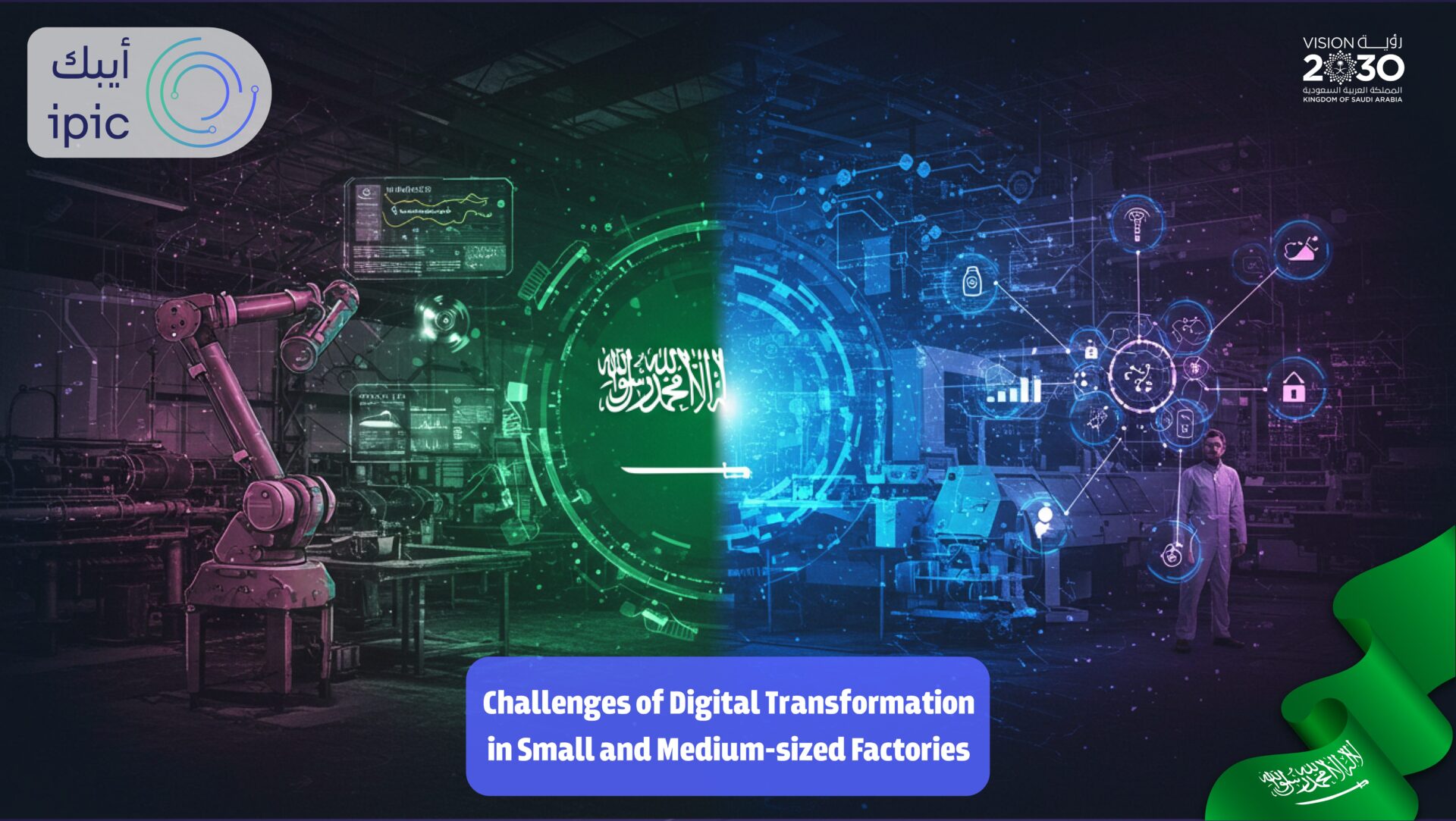Challenges of Digital Transformation in Small and Medium-sized Factories
In the era of digital transformation, all industries are moving towards adopting new technologies to enhance efficiency and increase productivity. However, small and medium-sized factories face numerous challenges that make the transition to modern technologies more complex. While digital transformation offers significant opportunities for improving productivity and reducing costs, several barriers stand in the way of these factories. Let’s explore these challenges and how to address them.
1. Lack of Capital and Financial Resources
One of the main challenges facing small and medium-sized factories in their digital transformation journey is the lack of capital. Unlike large corporations with large budgets to invest in modern technologies, small and medium-sized factories often struggle to allocate the necessary resources to upgrade their systems. Digital transformation requires substantial investments in technologies such as ERP, MES, and sensors, as well as training employees to use these systems. IPIC provides innovative solutions that help these factories implement digital transformation at competitive prices without requiring significant upfront investments.
2. Lack of Technical Skills and Expertise
Digital transformation not only requires investment in equipment and technology but also in developing new skills within the factory. The shortage of technical skills among employees is another challenge. Workers need training on how to operate advanced tools like AI, IoT, and integrated systems. IPIC offers specialized training programs to ensure that teams are equipped with the necessary skills to work with these advanced technologies.
3. Resistance to Change and Organizational Culture
One of the biggest challenges is resistance to change, which is common in many organizations, especially in factories that have been relying on traditional systems for years. Employees and management in small and medium-sized factories often prefer sticking to old methods they know and practice every day. This resistance may stem from fear of the unknown or the potential failure of adopting new technology. IPIC provides consultations and professional support to manage change, helping factories overcome this issue and ease the digital transformation process.
4. Digital Infrastructure Costs
Another obstacle faced by small and medium-sized factories is the cost of building a robust digital infrastructure. For example, factories need integrated systems like ERP and MES, advanced sensors for data collection, and networks to support Big Data. Many of these factories lack the necessary infrastructure to support these technologies effectively, which hinders their digital transformation journey. IPIC helps these factories reduce these costs through customized solutions that fit the specific needs of small and medium-sized factories.
5. Data Security and Cyberattack Protection
As digital reliance increases, security risks also rise. Small and medium-sized factories often lack the specialized technical expertise required to protect their data. With digital transformation, systems become more vulnerable to cyberattacks, such as data breaches or system disruptions. Therefore, securing data and protecting against cyber threats becomes crucial, which presents a major challenge for small and medium-sized factories that lack the resources for robust security systems. IPIC offers comprehensive security solutions to protect factory data and ensure the safety of digital systems in the workplace.
6. Difficulty in Adapting to Modern Technologies
Small and medium-sized factories face difficulties in adapting to modern technologies due to the continuous need to update their systems and processes. Sometimes, older processes and methods in these factories may not be compatible with some modern digital systems, making it challenging to integrate these technologies efficiently. Additionally, manufacturers may need to undergo significant changes in the work environment and redesign processes to maximize the benefits of digital transformation. IPIC offers consulting services and solutions for integrating modern technologies into existing factory environments.
7. Maintenance and Technical Support Costs
Digital transformation is not just about purchasing and implementing systems; it also requires continuous technical support and maintenance to ensure that the systems operate efficiently. Small and medium-sized factories often lack the resources to provide specialized, round-the-clock technical support, which complicates the digital transformation process. IPIC offers ongoing support and maintenance services for small and medium-sized factories, ensuring their digital systems operate smoothly without disruptions.
Opportunities Despite the Challenges
Despite these challenges, small and medium-sized factories still have significant opportunities to benefit from digital transformation:
- Improved Efficiency and Productivity: Automation and data analytics help factories reduce waste and increase production.
- Cost Reduction: Digital systems optimize resource consumption, reducing operational costs.
- Expansion and Growth: Digital transformation allows factories to scale faster and reach new markets through advanced analytics and digital marketing.
- Innovation: Technologies like AI and robotics provide significant opportunities for factories to develop new products and enhance processes.
How Can These Challenges Be Overcome?
To address these challenges, small and medium-sized factories can adopt a few strategies:
- Gradual Investment: Instead of undertaking a complete digital overhaul from the start, factories can begin by implementing gradual technologies (like basic ERP applications) and develop them over time.
- Leveraging External Consultations: Small and medium-sized factories can take advantage of digital transformation consultancy services offered by companies like IPIC, which provides tailored solutions to support factories’ digital transformation journeys.
- Training and Partnerships: Continuous employee training and opening channels for collaboration with technology companies will help keep up with the latest trends.
- Utilizing Cloud Systems: Small and medium-sized factories can use cloud-based systems to reduce the need for costly physical infrastructure and provide flexibility in scaling operations.
Conclusion
Digital transformation in small and medium-sized factories is a complex process full of challenges, but it also presents a tremendous opportunity for improving efficiency and ensuring sustainable growth. With proper planning, commitment to developing technical competencies, and leveraging integrated digital solutions, these factories can overcome the obstacles they face and achieve long-term digital success.



